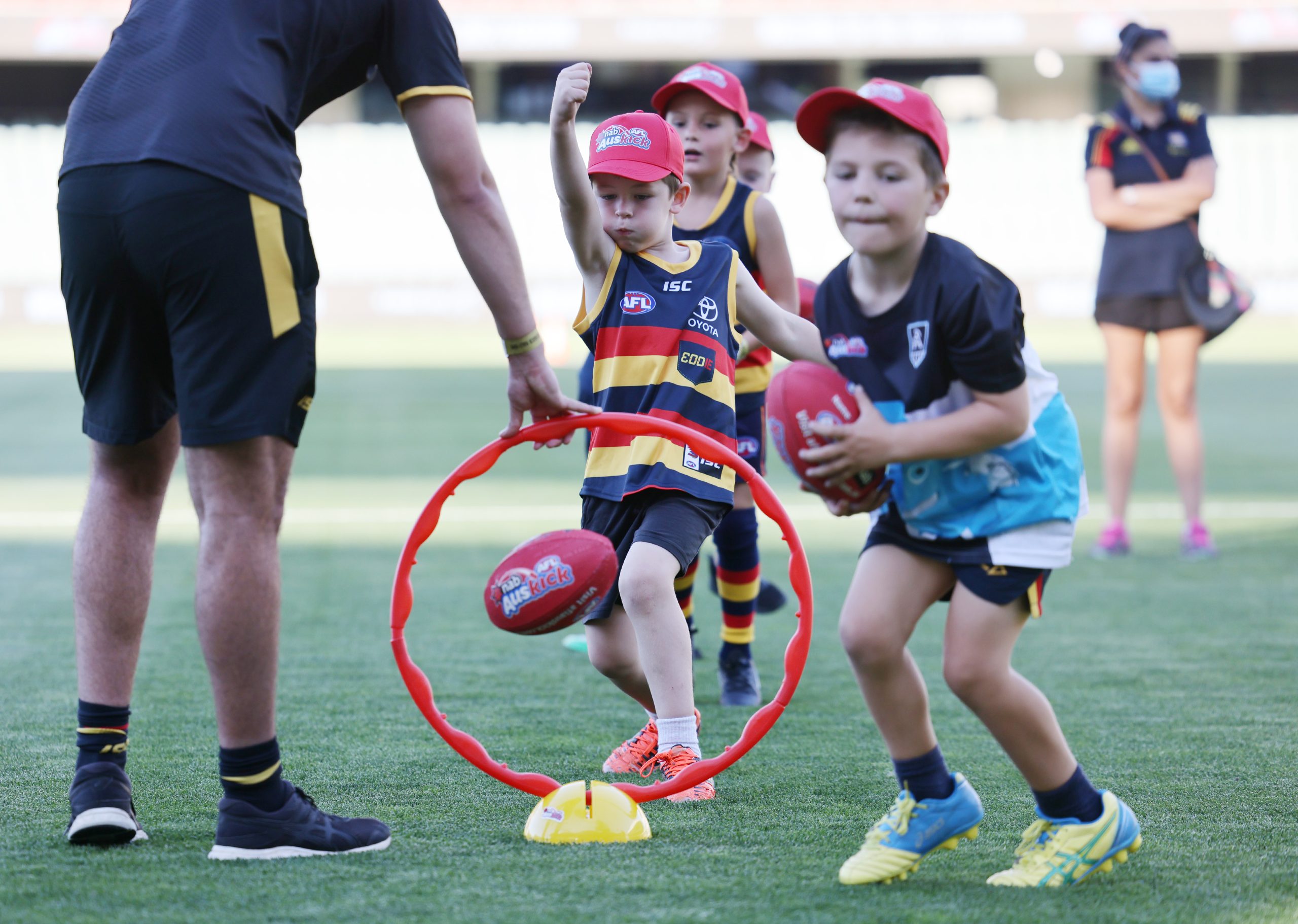Australian Rules Football (AFL) is not just a sport; it’s a way of life for many Australians. From grassroots levels to the professional arena, AFL captures the hearts and minds of people across the nation. However, beyond the thrill of the game and the roar of the crowd, AFL offers numerous benefits, especially for young children. In this blog post, we’ll explore why introducing children to AFL can be immensely beneficial for their physical, mental, and social development.
Physical Fitness and Health
One of the major benefits of children playing AFL is the promotion of physical fitness and overall health. AFL involves running, jumping, kicking, and handballing, providing a full-body workout that improves cardiovascular health, strength, agility, and coordination. With childhood obesity a common concern, encouraging kids to participate in sports like AFL can help combat sedentary lifestyles and establish healthy habits early on.
AFL promotes the development of motor skills, including balance, spatial awareness, and hand-eye coordination. These skills are not only crucial for success on the field but also have broader applications in daily life, such as in academics and other extracurricular activities.
Source: SANFL
Teamwork and Collaboration
AFL is a team sport that relies heavily on cooperation and collaboration among players. From passing the ball to setting up scoring opportunities, every aspect of the game requires teamwork. By participating in AFL, children learn the value of working together towards a common goal, understanding their role within a team, and communicating effectively with teammates.
Learning to work as part of a team fosters important social skills, including empathy, respect, and conflict resolution. Children develop a sense of camaraderie and belonging, forging friendships that can last a lifetime. These interpersonal skills are invaluable both on and off the field, contributing to success in school, future careers, and personal relationships.
Resilience and Perseverance
In AFL, as in life, setbacks and challenges are inevitable. Whether it’s a missed goal, a fumble, or a defeat, children learn to cope with failure and bounce back stronger. Through the ups and downs of the game, they develop resilience, perseverance, and the ability to overcome adversity.
Playing AFL teaches children the importance of resilience in the face of setbacks, instilling in them a growth mindset that emphasises effort and persistence over innate talent. These qualities are essential for navigating life’s challenges and pursuing long-term goals, setting children up for success in whatever path they choose to pursue.
Mental Wellbeing
Engaging in regular physical activity has been shown to have numerous benefits for mental health, and AFL is no exception. Playing sports like AFL helps reduce stress, anxiety, and depression by releasing endorphins and promoting a sense of accomplishment and well-being.
Participating in AFL also provides children with a sense of purpose and identity, boosting self-esteem and confidence. Successes on the field translate to increased self-belief and motivation, empowering children to tackle challenges both on and off the field.
Inclusivity and Diversity
AFL prides itself on being a sport for everyone, regardless of age, gender, or background. From Auskick programs for young children to inclusive leagues for people with disabilities, AFL provides opportunities for participation and belonging to individuals from all walks of life.
By engaging in AFL, children learn to appreciate diversity, respect differences, and celebrate inclusion. They develop empathy and understanding towards others, fostering a more inclusive and compassionate society.
In conclusion, the benefits of young children playing AFL are far-reaching and multifaceted. From physical fitness and teamwork to resilience and mental well-being, AFL helps children develop essential skills and qualities that will serve them well throughout their lives. Moreover, AFL promotes inclusivity and diversity, fostering a sense of belonging and community among participants.
If you’re looking to immerse yourself and your family in the excitement of AFL, there’s no better time than this weekend in Adelaide, as the AFL Gather Round event takes centre stage from April 4th to 7th. Throughout the city, families can participate in a plethora of events designed to bring them up close and personal with the stars of the game. From meet-and-greets with players to live entertainment, there’s something for everyone to enjoy. Click here to learn more about the Macca’s Footy Festival, which is a great free event for families to enjoy this weekend!








